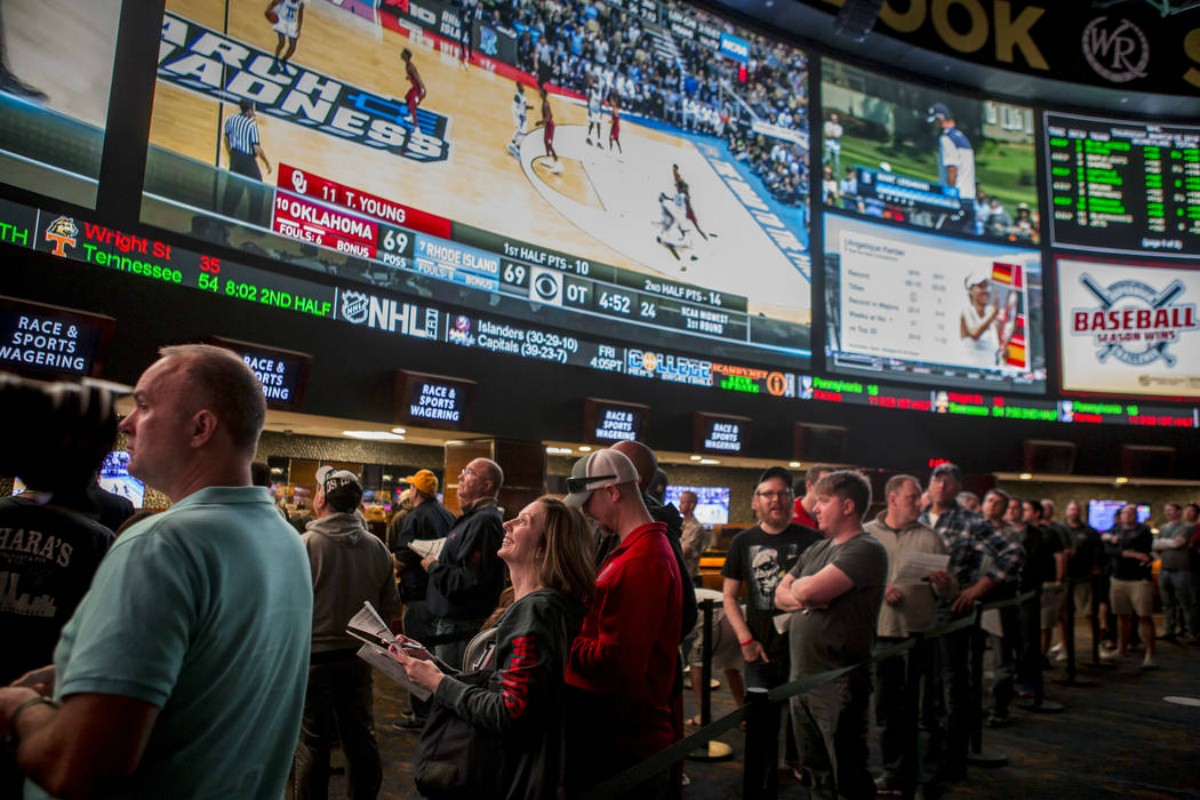We as human have always loved a good thrill; and we pay for it. Whether that be a physical thrill like skydiving or a psychological one like gambling. People have a certain affinity to gambling, one that fulfills a need in the monotony of the day to day; and as long as there have been sports, people have wagered on them. The Greek Olympiad, Roman Gladiatorial Games, 19th century horse racing, and now NFL; all these were events and “sports” that individuals bet on. Though the sports have changed, much is still the same; let’s see how we got here, and what the future might look like
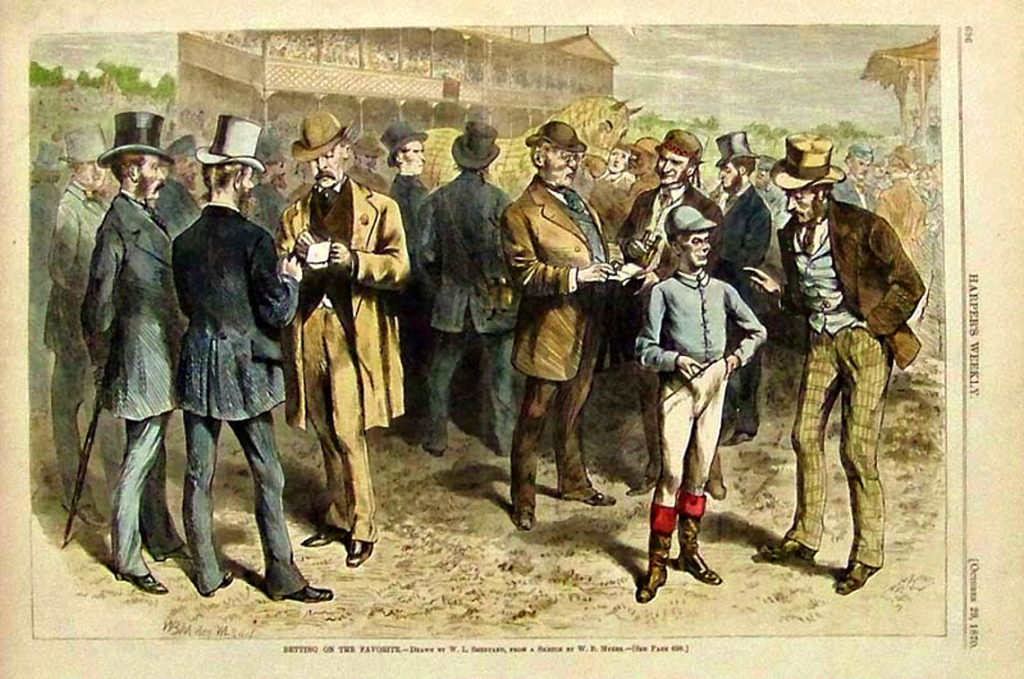
Sports Betting Today
Fast Forward to today where there is a $250 billion-dollar legal international sports betting market. This is huge, but it in no way tells the full story. Though it is hard to estimate; in the US alone it is estimated that American’s wager $150 billion each year illegally. People project about $8.5 billion of that is done during March Madness specifically during a 3 week period. All numbers aside, it is obvious that sports betting is a huge market, but the question is how does the US fit into the LEGAL picture?
With sports betting being banned from 1992-2018, legal sports betting has existed mainly through fantasy sport. Companies like Fanduel and Draft Kings capitalized on this ban, but how did they differ? The distinction is places like FanDuel offered “skill” games. A legal case proved this distinction of skill. Researchers analyzed a large sample of players performance over an extended period and tracked their wins & losses. If each player had about a 50% success rate, then this is a game of chance, like flipping a coin, no skill. However, they found some people had up to 90% success in head to head fantasy match-ups. The game of chance we think of with betting on sports took 26 years for them to legalize it since it’s ban. It was in 1992 that the U.S. Supreme Court passed a bill to ban gambling on sports outside Nevada. 2018 a New Jersey Case overturned that ban opening up the floodgates of legislation. Currently there are 13 states with some forms of legal sports betting, and 7 more that have passed bills and are well on their way. With more and more states legalizing there is a large opportunity for this market to grow. In 2009 the US sports betting market had an evaluation of $20 billion, in 2016 $40 billion; with more states passing legislation we could see that $150 billion of illegal wagers added to what could be an almost $200 billion market.
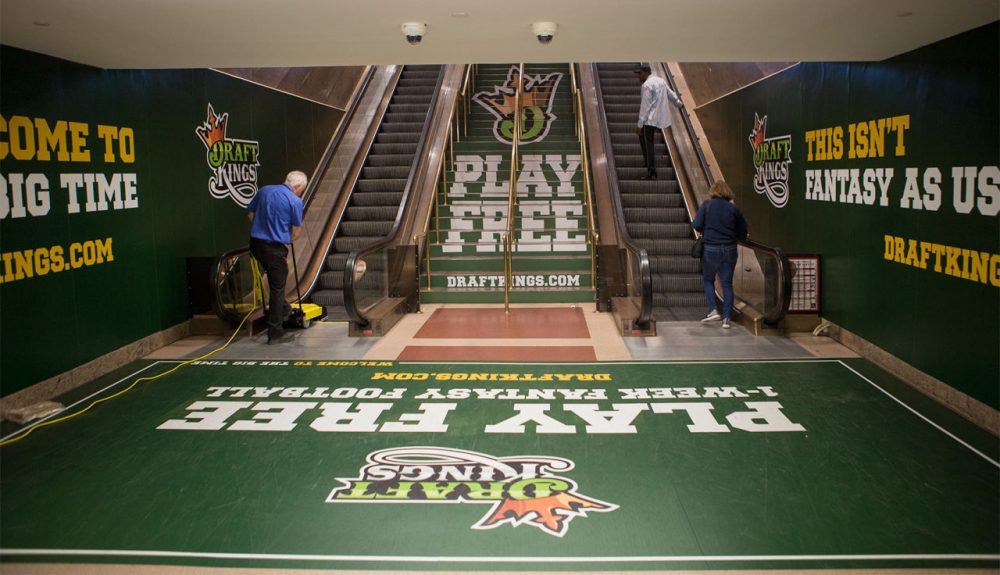
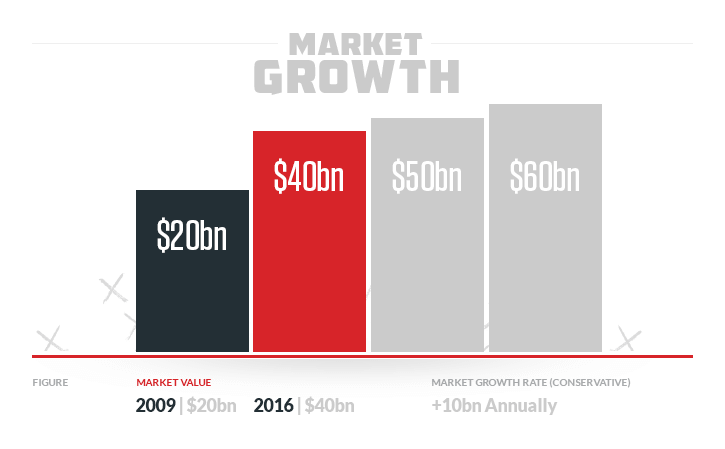
Future of Sports Betting
The two things that have contributed most to this explosion in the US are deregulation and innovation. We’ve obviously talked about the legal woes historically limiting this market, but technology has really enabled the future of sports betting. Interconnectedness to the sports you watch has provided an opportunity for gambling that just wasn’t there before. It used to be “hard work” to place a bet and go down to the race track 20 miles away. Now, there are tons of apps to choose from and the amount of data being collected has allowed for more betting options. When people talk about big data, they are talking about opportunities provided by and available because of enormous amounts of data being collect, stored, and analyzed that just weren’t there before. This data has allowed for many nuanced bets to be offered at scale such as futures for betting on who will win the World Series almost a year before it happens, or parlays where people bet on 5 games correctly for a large payout; they even have things like prop bets for what color Gatorade will be poured at the end of a Super Bowl. I think the future of sports betting is endless live prop bets done on a mobile device. Imagine, whether you are at the game or sitting at home; you can live bet how many runs will be scored in the next inning or how many times the Warriors Coach scratches his head in the 2nd half. TV programming and stadium display could play into the spectacle of advertising these betting opportunities for the games you’re watching. Sportsbooks can collect mass amounts of data given historical sports results, as well as the way people are betting, and can set highly efficient lines that split wagers right down the middle for long term success. With the growth of the industry new betting markets are popping up such as video games. Video streaming has enabled $1 billion in revenue for E-sports gambling. These events may not exist without the access to a wider audience provided by streaming, and they certainly wouldn’t be bet on if people didn’t have access to them.
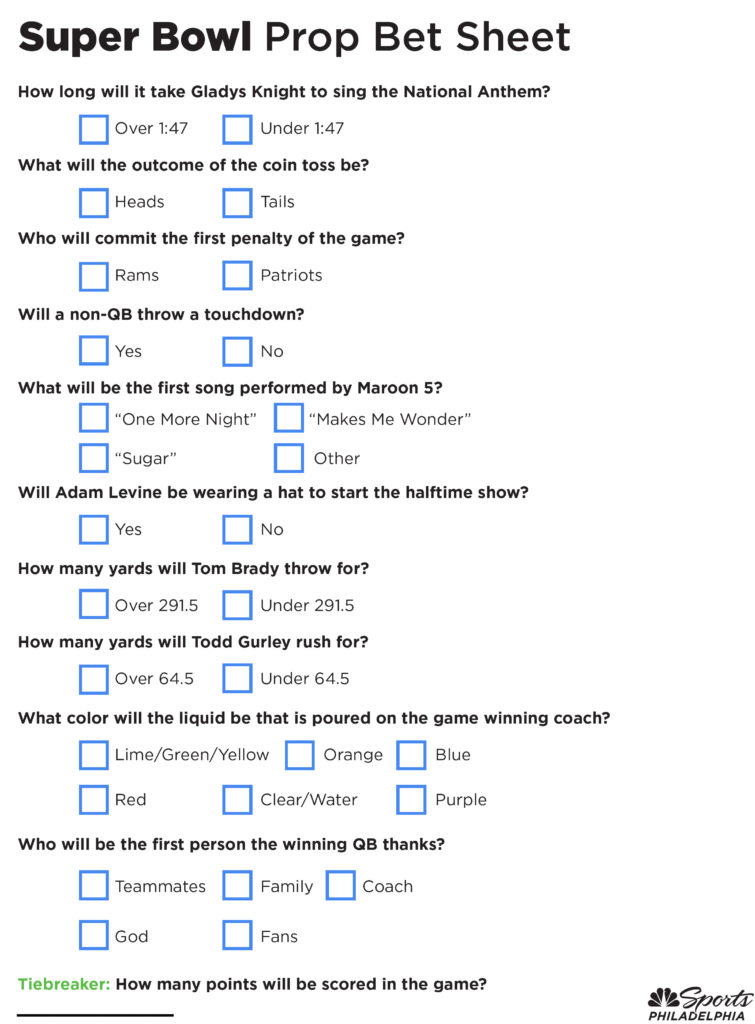
Future Challenges
However, with all this being said – betting on sports in the US and its growth still have some major challenges. For one, though we are approaching 20/50 states having legal sports betting in a matter of a couple years; it may be sometime before all of them have it legalized. Certain states are steadfast in their philosophy around vices such as gambling, Utah may never legalize any aspect of gambling. Another issue is getting the actually sports leagues in the US to buy in. Currently all gambling sites want sports betting to be legal, but sports leagues are less sure. League officials are worried about the integrity of the game; they believe there’s potential for players/coaches to make under the table deals with large bettors for them to receive a payout. This is especially risky in leagues like NCAA Basketball where players are unpaid and may have no issue throwing a game in order to receive $10,000 of the gamblers $100,000 win. One way they are looking to combat this is through bookmakers paying leagues a small integrity fee to handle overhead in preventing these occurrences. At the end of the day, both sportsbooks and sports leagues should have a symbiotic relationship because more people that gamble on sports means more people watching sports and vice versa. The final issue with sports betting as I see it is to due with addiction. As with all things, it’s ok to gamble if not in excess, it becomes a problem when it is to your psychological or physical detriment. In the years after New Jersey’s legalization of sports betting there was about a 20% uptick in gambling addiction cases. Even though taxes come from gambling and taxes are good/necessary for public services; it is not good for the public to have people on the streets due to money lost gambling. There is a balance there, and many states are still suspect.
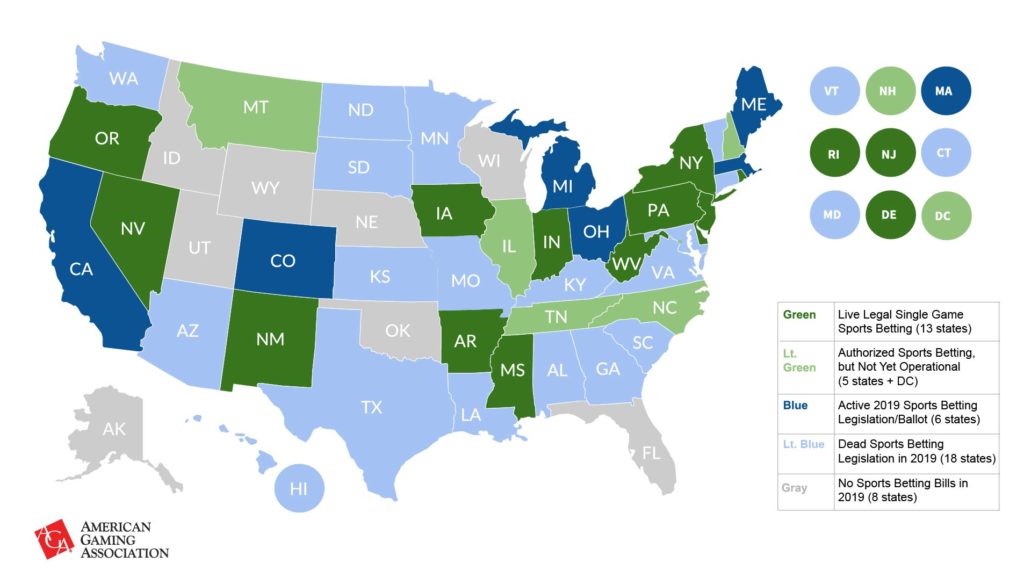
These are exciting times if you are interested in betting on sports, and things are changing rapidly. Check back here for more posts about sports and tips for the common sports bettor.
Check out our advisory service if you’re interested in tools to help you beat the bookie: http://www.sportsoracle.net

